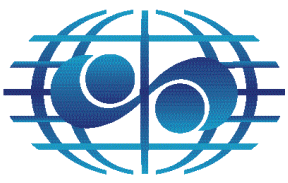
International Network of Basin Organizations
Encyclopedia

Its objective is to promote the exchange of experiences between organizations in charge of river basin
Drainage basin
A drainage basin is an extent or an area of land where surface water from rain and melting snow or ice converges to a single point, usually the exit of the basin, where the waters join another waterbody, such as a river, lake, reservoir, estuary, wetland, sea, or ocean...
management in such areas as institutional and financial management, knowledge of water resources, training different stakeholders involved in water management as well as the staff of basin organizations, and increasing the awareness of the general public for water resources management. It also promotes the twinning of basin organizations from different countries, including the exchange of staff. INBO and its member organizations support the application of Integrated Water Resources Management
Integrated Water Resources Management
Integrated Water Resources Management has been defined by the Technical Committee of the Global Water Partnership as "a process which promotes the coordinated development and management of water, land...
As of 2000 INBO included 134 members or observers. Some countries are represented by a government Ministry, whether these countries have established river basin organizations (such as Morocco) or not (such as India). Other countries, notably France and Spain which both have a long tradition of well-established river basin organizations (see :fr:Agence de l'eau and :es:Confederación hidrográfica), are represented both at the Ministerial level and by river basin organizations. Algeria, Brazil
Water resources management in Brazil
Water resources management is a key element of Brazil’s strategy to promote sustainable growth and a more equitable and inclusive society. Brazil’s achievements over the past 70 years have been closely linked to the development of hydraulic infrastructure for hydroelectric power generation and...
and Mexico
Water resources management in Mexico
Water resources management is one of Mexico's pressing concerns, and it is imposing heavy costs to the economy. The arid northwest and central regions contain 77% of Mexico's population and generate 87% of the gross domestic product . Poor southern regions have abundant water resources...
, which have all established river basin organizations during the 1990s, are represented both by institutions at the national and at the basin level. As of 2000 INBO had no members from China, Egypt, Germany, Nigeria, South Africa, Turkey or the United States, countries which have no or few river basin organizations. INBO includes transboundary basin agencies, such as the Organisation pour la mise en valeur du fleuve Sénégal
Organisation pour la mise en valeur du fleuve Sénégal
The Organisation pour la mise en valeur du fleuve Sénégal is an organisation of Guinea, Mali, Mauritania and Senegal to manage the Senegal River and its drainage basin....
(OMVS). It also includes several international organizations and partnerships, such as UNEP, UNDP and the Global Water Partnership
Global Water Partnership
The Global Water Partnership , is an international network that offers practical advice for sustainably managing water resources. It promotes and supports activities that operate at the national and regional levels of development...
, as well as regional organization such as the Southern African Development Community
Southern African Development Community
The Southern African Development Community is an inter-governmental organization headquartered in Gaborone, Botswana. Its goal is to further socio-economic cooperation and integration as well as political and security cooperation among 15 southern African states...
(SADC).
There are regional networks within INBO. They cover Eastern and Central Europe (CEENBO, created in 2001), Sub-Saharan Africa (ANBO, created in 2002), the Mediterranean (MENBO, created in 2004), Asia (NARBO, created in 2004), Latin America (LANBO, created in 2008) and North America (NANBO, created in 2009).
External links
- riob.org - official homepage
- Mediterrranean Network of Basin Organisations homepage: http://www.remoc.org

